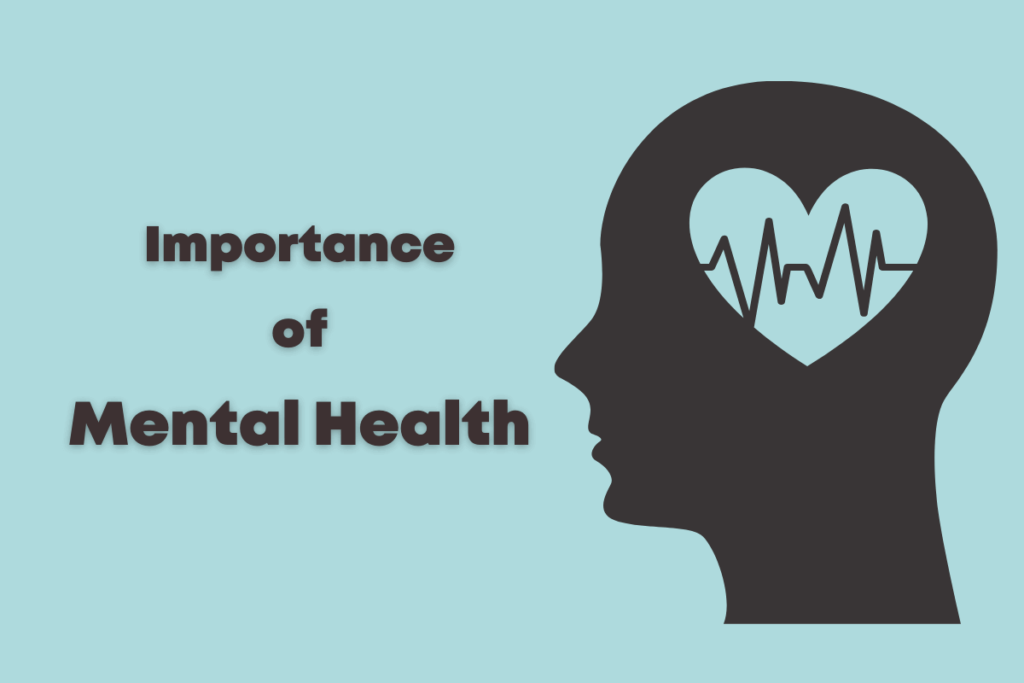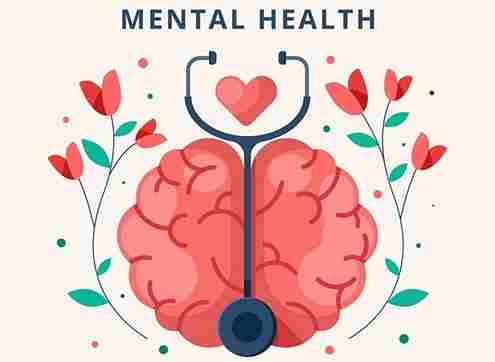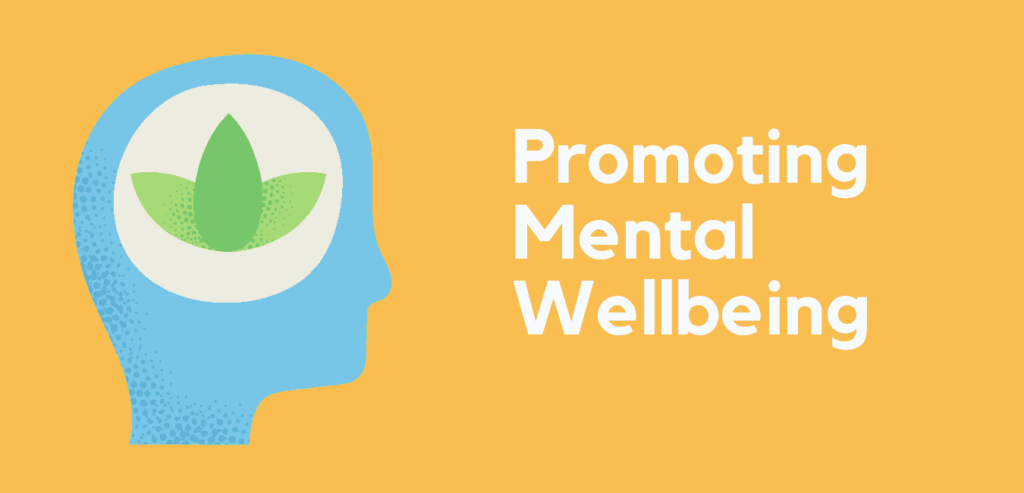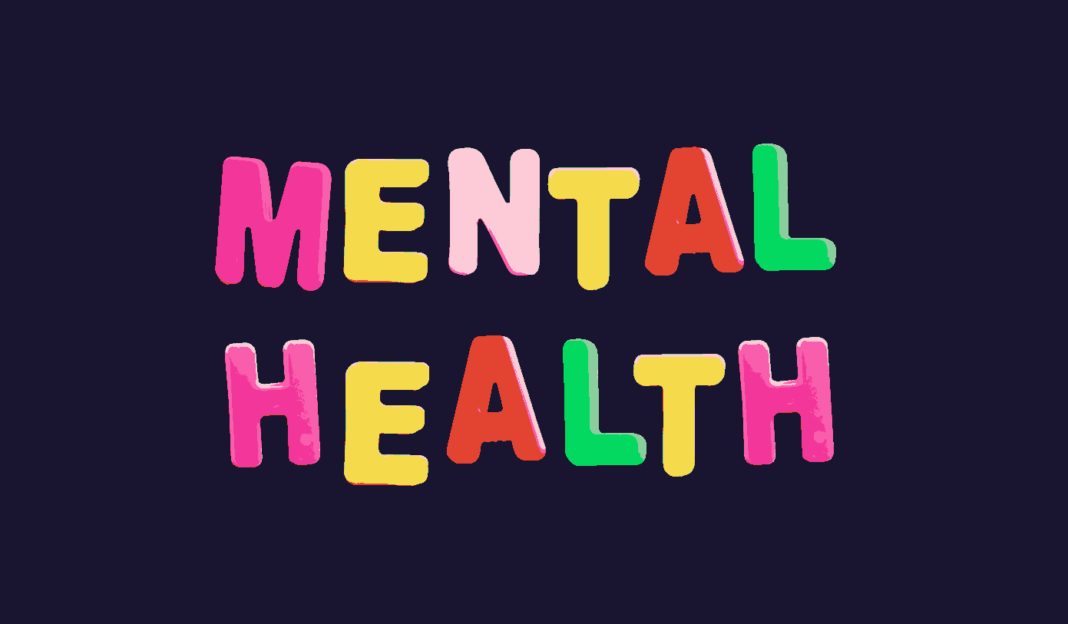Mental health is a crucial aspect of overall well-being that encompasses emotional psychological and social dimensions. It affects how individuals think feel and act influencing their ability to handle stress relate to others and make decisions. Despite its importance mental health often remains misunderstood and stigmatized. This article aims to provide a comprehensive understanding of mental health its significance common disorders contributing factors and strategies for promoting mental wellness.
The Significance of Mental Health

Mental health is integral to living a fulfilling life. Good mental health enables individuals to:
- Realize Their Potential:
- When mental health is in a positive state people are more likely to pursue and achieve their goals whether personal or professional.
- Cope with Normal Stresses of Life:
- Life is full of challenges and mental resilience helps in navigating through tough times without being overwhelmed.
- Work Productively: Mental well-being enhances concentration creativity and productivity contributing to career success.
- Contribute to Their Community: Healthy mental states foster better relationships and a sense of community as individuals are more likely to engage positively with others.
Common Mental Health Disorders
Mental health disorders are varied and affect people differently. Some of the most common include:
- Anxiety Disorders: Characterized by excessive fear or anxiety these disorders include generalized anxiety disorder (GAD) panic disorder social anxiety disorder and specific phobias. Symptoms can range from mild to debilitating impacting daily life.
- Depressive Disorders: These include major depressive disorder (MDD) persistent depressive disorder (dysthymia) and bipolar disorder. Depression affects mood energy levels and interest in activities often leading to significant impairments in functioning.
- Obsessive-Compulsive and Related Disorders: Obsessive-compulsive disorder (OCD) involves unwanted repetitive thoughts (obsessions) and behaviors (compulsions). Related disorders include body dysmorphic disorder and hoarding disorder.
- Post-Traumatic Stress Disorder (PTSD): PTSD can develop after experiencing or witnessing a traumatic event. Symptoms include flashbacks severe anxiety and uncontrollable thoughts about the event.
- Eating Disorders: These disorders such as anorexia nervosa bulimia nervosa and binge eating disorder involve unhealthy preoccupations with food weight and body image.
- Personality Disorders: These include borderline personality disorder (BPD) antisocial personality disorder and narcissistic personality disorder characterized by enduring patterns of behavior cognition and inner experience.
- Psychotic Disorders: Schizophrenia is the most well known psychotic disorder involving distorted thinking perception emotions language and behavior. Symptoms include hallucinations and delusions.
Contributing Factors to Mental Health Disorders

Several factors contribute to the development of mental health disorders:
- Biological Factors: Genetics play a significant role in mental health. Neurotransmitter imbalances hormonal changes and structural abnormalities in the brain can contribute to disorders. Family history of mental health issues increases susceptibility.
- Psychological Factors: Trauma abuse and neglect during childhood can have long lasting impacts on mental health. Stressful life events such as loss of a loved one divorce or job loss can trigger mental health issues.
- Social and Environmental Factors: Social isolation discrimination poverty and exposure to violence are significant risk factors. Lack of social support and unhealthy relationships can exacerbate mental health problems.
- Lifestyle Factors: Poor nutrition lack of physical activity substance abuse and inadequate sleep negatively affect mental health. Chronic medical conditions and ongoing stress also play a role.
The Impact of Stigma on Mental Health
Stigma surrounding mental health remains a major barrier to seeking help and support. It manifests in several ways:
- Public Stigma: Negative stereotypes and discriminatory attitudes towards individuals with mental health issues lead to social exclusion and discrimination.
- Self-Stigma: Internalizing negative beliefs about oneself due to a mental health condition can result in low self esteem shame and reduced self efficacy.
- Structural Stigma: Institutional policies and practices that limit opportunities for individuals with mental health disorders can affect access to care employment and education.
Addressing stigma requires public education to dispel myths promote understanding and encourage acceptance. Media representation advocacy by mental health organizations and personal stories of recovery can help change societal attitudes.
Promoting Mental Health and Well-being

Promoting mental health involves individual community and societal efforts. Strategies to enhance mental well being include:
- Self-Care Practices:
- Healthy Lifestyle: Regular physical activity balanced nutrition adequate sleep and avoidance of substance abuse are foundational for mental well being.
- Stress Management: Techniques such as mindfulness meditation deep breathing exercises and yoga can help manage stress.
- Time Management: Prioritizing tasks setting realistic goals and taking breaks can reduce overwhelm and enhance productivity.
- Building Resilience:
- Positive Relationships: Strong supportive relationships with family friends and community members provide a buffer against stress and adversity.
- Problem-Solving Skills: Developing effective problem solving and coping skills can increase resilience.
- Positive Thinking: Cultivating a positive outlook and practicing gratitude can improve overall mood and outlook.
- Access to Mental Health Care:
- Therapy and Counseling: Psychotherapy such as cognitive behavioral therapy (CBT) can help individuals manage symptoms and develop coping strategies.
- Medication: For some medication may be necessary to manage symptoms. Antidepressants antianxiety medications and antipsychotics can be effective when prescribed and monitored by healthcare professionals.
- Support Groups: Peer support groups provide a sense of community and shared experience helping individuals feel less isolated.
- Workplace Mental Health:
- Mental Health Policies: Organizations should implement policies that support mental health such as flexible working hours mental health days and access to counseling services.
- Work-Life Balance: Encouraging a healthy work life balance can reduce stress and improve mental well being.
- Training and Education: Providing mental health training for employees and managers can increase awareness and reduce stigma in the workplace.
- Community and Societal Initiatives:
- Public Awareness Campaigns: Campaigns that educate the public about mental health and promote help seeking behavior can reduce stigma and encourage support.
- Accessible Services: Ensuring mental health services are accessible and affordable for all including underserved populations is essential for comprehensive care.
- Policy Advocacy: Advocating for policies that support mental health such as funding for mental health research and services can drive systemic change.
Mental health is a vital component of overall health and well being. Understanding its importance recognizing common disorders and being aware of contributing factors are essential steps in addressing mental health issues. Reducing stigma and promoting mental wellness through self care resilience building access to care and supportive workplaces and communities can lead to better outcomes for individuals and society as a whole. By prioritizing mental health we can create a more compassionate understanding and healthier world.




